#SAM FEUERBACH
Text
WIP doodles for some books I've been listening to

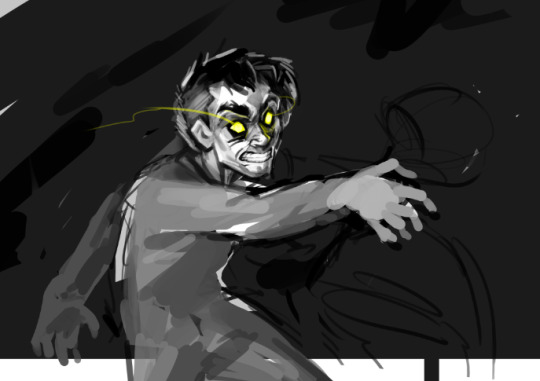
8 notes
·
View notes
Text
SAGA KROSANN - SAM FEUERBACH
Calificación:
⭐⭐⭐⭐
Rating: 4 out of 5.
Volúmenes de los que consta la saga por el momento:
(Volumen 1) El Cuervo Asesino(Volumen 2) El Maestro De La Espada(Volumen 3) El Reloj De Arena(Volumen 4) La Diosa Myrnean(Volumen 5) La Lanza Del Alma(Volumen 6) El Traidor (Se publicará el 24 de Noviembre de 2024)
Argumento vol. 1 “El Cuervo asesino”: En el corazón del mundo medieval, el príncipe…

View On WordPress
0 notes
Text
The submissions masterboard



Overview: a mix and mash of several different teams, now including wbb teams
Warnings: ageplay, bd/sm, d/s relationships, agere
Wolfsburg:
Doms: Rebecka, Poppi, Dominique, Svenja, Merle
Subs: Lena, Lynn, Jule, Ewa, Sveindis, Vivien
Gotham:
Doms: Michelle Betos, Cassie Miller, Sam Hiatt, Mandy F, Sinead F, Esther G, Lynn W, Katie S, Crystal, McCall
Subs: Margaret Purce, Maitane, Rose L, Yazmeen, Kristen E, Emily S, Delanie S, Taryn T, Jenna N, Maycee B, Tierna D, Nealy M, KO, Bruninha, Abby S
Aston villa:
Doms: Rachel Daly, Kenza Dali, Lucy S, Mayumi, Danielle T, Rachel C, Adriana L
Subs: DVD, Anna L, Sarah M, Anna P, Lucy P, Noelle M, Jordan, Freya G, Ebony S, Simone M, Kirsty H, Miri, Alisha L, Maz
NC Courage:
Doms: Marisa B, Hensley H, Haley H, Estelle J, Rikako K, Kaleigh K, Denise O, Landy M, Victoria P, Bianca SG
Subs: Malia B, Sydney C, Julia D, Mille GJ, Tyler L, Manama M, Maya M, Narumi, Casey M, Brianna P, Felicitas R, Ashley S, Meredith S, Natalia S, Danielle W, Ryan W, Olivia W
Portland thorns:
Doms: Janine B, Bella B, Meghan K, Christine S, Hina S, Gabby P, Meghan N, Izzy D (switch), Shelby Hogan
Subs: Katherine A, Sam C, Payton L, Jessie F, Kelli Hubly, Lauren K, Marie M, Isabella O, Nicole P, Sophia S, Morgan W, Reyna Reyes, Janine (switch)
San diego wave:
Doms: Kailen S, Abby D, Emily VE, Amirah A, Sofia J, Alex M, Kristen M, Savannah M
Subs: Naomi G, Hannah L, Sierra E, Jaedyn S, Kennedy W, Makenzy D, Kaitlyn T, Mya J, Kyra Carusa, Christen Westphal, Hillary B (switch), Elyse B, Danielle C, Morgan M
Seattle reign:
Doms: Lauren B, Nikki S, Angharad J, Jess F, Sofia Huerta, Ryanne, Veronica L, Laurel Ivory
Subs: Claudia D, Alana Cook, Quinn, Bethany B, Jordyn H, Olivia A, Julia L, Lily W, Sam M, Phoebe M, Tziarra, Shae H, McKenzie W, Maddie M, Ji So-Yun
Spurs:
Doms: Ash N, Molly B, Martha T, Amanda N, Becky S, Eveliina S, Drew S, Matilda V(switch, cg), Ramona P, Luana B, Amy T, Celin (Graces)
Subs: Grace C, Beth E, Charli C, Celin B, Rosella A, Barbora V, Kit G, Olga A, Wang S
Iowa State
Doms: Molly Davis, Sydney Affolter, Kylie Feuerbach, Kennise Johnson, Jada Gyamfi, Sharon Goodman
Subs: Taylor McCabe, Gabbie Marshall, AJ Ediger, Ava Jones, Addy O’Grady, Hannah Stuelke
Switches: Kate Martin, Caitlin Clark, Monika Czinano, Megan G
Uconn
Doms: Aubrey Griffin, Aaliyah Edwards, Dorka Juhász, Caroline Ducharme, Amari DeBerry, Ayanna Patterson, Jana El Alfy
Subs: Paige Bueckers, Azzi Fudd, KK Arnold, Quadence Samuels, Ashlynn Shade, Inês Bettencourt, Nika Muhl (switch),Lou Lopez Sénéchal, Ice Brady
0 notes
Text
some of the athiests that have overlapping and back ups of my god put downs = richard dawkins , sigmund freud , andrei sakharov, ayn rand, thomas edison, rosalind frankland , karl marx ,matt dillahunty , aron ra , robert ingersoll , dan barker , tom jump , 1. Charles Darwin
2. Albert Einstein
3. Alan Turing
4. Stephen Hawking
5. Christopher Hitchens
6. Isaac Asimov
7. Carl Sagan
8. Bertrand Russell
9. Socrates
10. Thomas Paine
11. Hypatia
12. Thomas Jefferson
13. Richard Dawkins
14. Epicurus
15. Mark Twain
16. Richard Feynman
17. Frederick Douglas
18. Kurt Vonnegut
19. Aristotle
20. George Carlin
21. Friedrich Nietzsche
22. Leonardo da Vinci
23. Yuri Gagarin
24. Ludwig Feuerbach
25. Voltaire
26. Sam Harris
27. Benjamin Franklin
28. Seth Andrews
29. David Hume
30. Madalyn O’Hair
1 note
·
View note
Text
Wieder einmal entpuppte sich das Leben als der beste Lehrmeister, stellte der Wachsoldat fest. Die Schande gehört dir ganz allein, dein Ruhm gehört vielen.
Der Meister der Elixiere, Sam Feuerbach
0 notes
Text
🟣🟣The whole story - The Gravedigger’s Son and the Waif Girl: Volume 1 to 4🟣🟣 by ✍Sam Feuerbach

#Fiction #Epic
All four books in one collective volume of Sam Feuerbach’s best-selling saga, winner of the well-respected #Fantasy Prize 2018 and #Kindle #Storyteller Finalist:
Farin, the gravedigger’s son, lives in the #medieval #village of Heap. The eighteen-year-old is an outsider, #bullied and #ostracised by the #villagers. His father has succumbed to a life of #drinking, and so the young man has no option but to take over the job of #gravedigger. Farin’s life takes a dramatic twist when the village #witch #dies and he prepares her for #burial. He finds an #amulet hanging around the #deceased preparer of #poisons neck. And he can’t resist trying the trinket on…
Available on #Amazon Kindle
#kindlebargain#kindle#kindlebooks#amazon#amazon kindle#amazonbook#amazonkindle#bookstagram#book#books#books & libraries
0 notes
Text
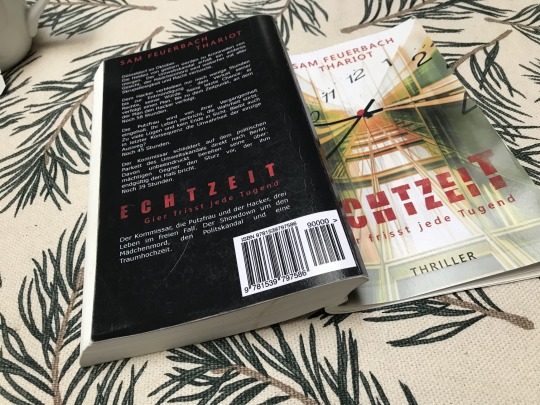
Teil 3 der Serie gestartet.
0 notes
Text
Books of 2021
I was tagged for this by @motherofkittens94. Thank you, honey, and happy new year!
------------------
did you reach your reading goal for the year (if you had one)? // I haven't had any reading goal, but I'm very satisfied with the amount of books I've finished.
what are your top 3 books you read this year? // Let my think for a second... "Burial Rites" by Hannah Kent, "The Gravedigger's Son"-series by Sam Feuerbach and "We Begin At The End" by Chris Whitaker.
what’s a book that you didn’t expect to enjoy quite so much going in? // Definitely the work of Sam Feuerbach. I just felt like a change of genre without expecting much and now I cannot stop to read every of his books.
were there any books that didn’t live up to your expectations? // "Tyll" by Daniel Kehlmann felt like a disappointment to me. I just couldn't get into it, no matter how high it was prasied by critics.
did you reread any old faves? If so, which one was your favourite? // I've only reread "Zoo Station. The Story of Christiane F." by Christiane F. Wouldn't call it a favourite of mine, but it's an important book you should reread from time to time.
did you dnf any books? // Of course, I don't have any time to waste on books I dislike.
did you read any books outside your usual preferred genre(s)? // I did and most of them were worth it!
what was your predominant format this year? // Audio book. Audible has become my best friend in life.
what’s the longest book you read this year? // Can't exactly tell, but I have read some series that mount up to far over 1000 pages.
what are your top 3 anticipated 2022 releases? // None. I don't know what's going to be published in 2022.
what books from your tbr did you not get to this year, but are excited to read in 2022? // I definitely want to finally reread "The Lord of the Rings" - that's what I'm looking forward to the very most.
--------------
I tag @jessthebooklover, @cafeleningrad, @bloody-wonder, @duchess-of-tales, @amortentiaforenemies, @ladyinrosso and @randomlut.
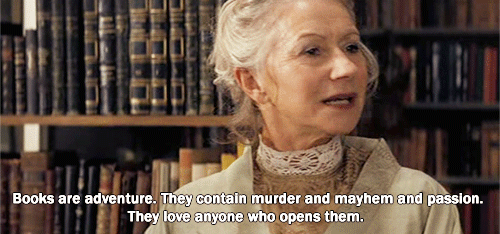
6 notes
·
View notes
Note
Morning :) Do you have any recommendations for German literature? Favourite books?
Hi there!
Oh yes, I have.
One of my absolute favs is : Otfried Preußler, 'Krabat'. I even wrote a Jonsa AU for that : New Year's Eve at the Black Mill. (in case you want to get a feel for it and don't read German) I've read it many times already. It's a young adult book but it has very serious and dark themes and you could argue that it is a metaphor for the seduction of young people in Nazi times (but also a retelling of an old Sorbic Folk tale).
Another fav is: Ulla Hahn, 'Das verborgene Wort'. It takes place in the Rhineland, which is my home and it is a wonderful book on the power of language, literature and reading.
Wolfgang Hildesheimer, 'Lieblose Legenden' and 'Paradies der falschen Vögel', classics of comedy if you ask me.
Saša Stanišić, 'Vor dem Fest'. I know his name doesn't look German (lol) - that is because he migrated to Germany at the age of 14 when his family fled Yugoslavia. He is a meticulous observer but you really have to dive into the detailed characteristics he writes.
I love, love, love Robert Gernhardt. His funny lyrics are fantastic.
And then there is Marc-Uwe Kling and his Kangaroo ('Känguruh- Chroniken') which I honestly don't know how to describe to you. Imho opinion you should listen to the audio-book, because it is even funnier with Kling doing the voices. You can check this clip on Youtube in English if you want (https://www.youtube.com/watch?v=9coI5i7uV9o&t=0s) to get an idea what it is about (just disregard his accent). And yes, it's comedy but he is also quite obversant.
There is also 'Qualityland' a distopian novel by the same author. It's funny and extremely disconcerting at the same time. You have to laugh and at the same time the laughter sticks in your throat and you want to cry.
I would also recommend children's books and stories that are clever, a bit subversive and all in all just wonderful: That is Paul Maar, all the books about the Sams and Ellis Kaut, all the stories about Pumuckl.
It is quite difficult to describe what exactly the Sams and Pumuckl are.
Honorary mention to Michael Ende's 'Momo' and 'Die Unendliche Geschichte' (please never watch the movie), to Cornelia Funke for her fantasy novels and to Sam Feuerbach who writes 'classical' fantasy but with refreshing characters and a lot of humour.
One of my all time favourites is also a classic. I've never come to like Goethe our greatest classic, but I like Friedrich Schiller very much. He is very serious but he has a wonderful ability to do dramatic twists in his plays and there is a reason that some of his one-liners have become common sayings in German.
I'm sure I forgot quite a lot of my favs. lol
Thanks for the ask!
11 notes
·
View notes
Text
Yet John's distinctiveness with regard to the soul's discernment of its desires lies in his recognition that this reordering of the soul's perception of the created order is itself essential for a true vision of God. John recognizes, long before Feuerbach, the extent to which projection shapes the human relationship with God. John's account of human projection does not come in the context of an argument for atheism, however, but rather in the course of his account of how souls may come to know God. The soul's projection of certain visions of God is, in John's account, a result of the self-centredness of the untransformed soul. The 'dark night of the soul' is perhaps the most renowned element of John's response to this dilemma: a 'darkening' of the soul's attachment to created objects so that in 'dark faith' the soul may proceed on the spiritual ascent. But the dark night is set by John within the context of a far broader graced and life-long transformation of the soul's desires so that they may be united with God's own desire.
Sam Hole, John of the Cross: Desire, Transformation, and Selfhood
3 notes
·
View notes
Note
10, 30, 37 :)
Thank youuuuu!! 😊❤️
10. how would you describe your style?
Comfy, practical, simple. (With a tendency for colorful pants, knitted pullovers, crop tops and floral patterns hehe.) When I'm at home I always wear baggy pants though. 🙈 I'm not very fashionable (yet) 😬
30. whats your favorite candle scent?
I don't use candles because I'm scared of fire, and lazy too 😂 But maybe I'll give candles a try once I live on my own 😅
37. do you read a lot? whats your favorite book?
Already answered this but I'll tell you another book series I really like hehe: Die Gaukler Chroniken by Sam Feuerbach.
4 notes
·
View notes
Text
Der Totengräbersohn (The Gravedigger's Son), Book 4, Author: Sam Feuerbach - Part 1
Unfortunately, this is only in German. If you find an English translation, please let me know and I will add it.
A summary of the scene: Farin is the son of a gravedigger. Now he is the squire of the First Knight Emicho. He left the King's castle without the consent of Emicho to save a girl and her village that he fell in love with. The village has been attacked by the Rabe (Raven) to lure Farin out of the castle.
Oh, there is another thing. He is possessed by a demon who he calls Ekel (Stinker). Problem is this demon has his own kryptonite in the form of a strange blue metal. So the Raven and his goons manage to injure him with an arrow that has a tip made of the blue metal as well as a helmet made of the same metal. Let's say, Stinker is not doing so well and he is no help to Farin at all. The Raven meets bis boss the Prinzipal. The Prinzipal is also possessed. By Stinker's brother. They get ready to slit Farin's throat.
Here is the first part of the interaction:
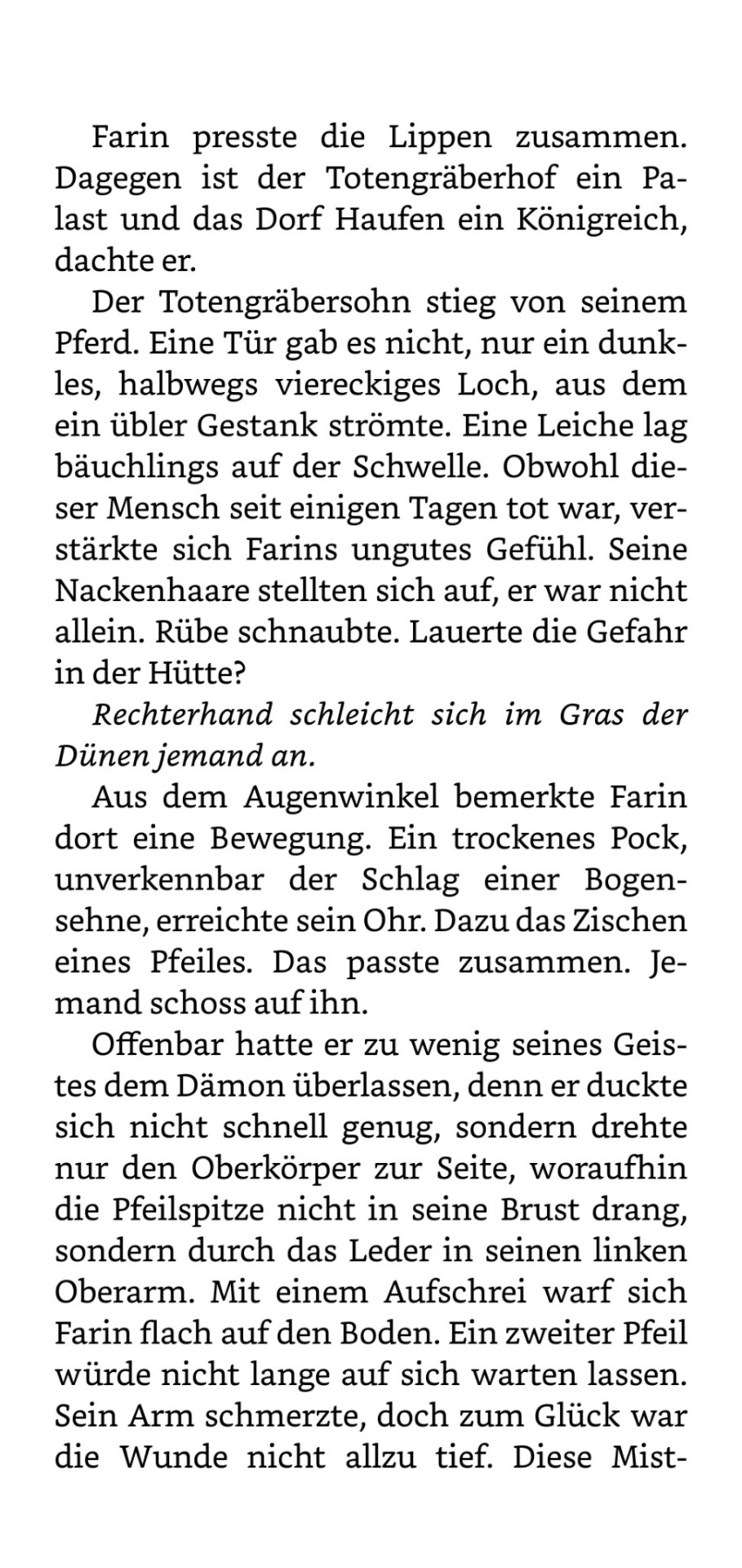
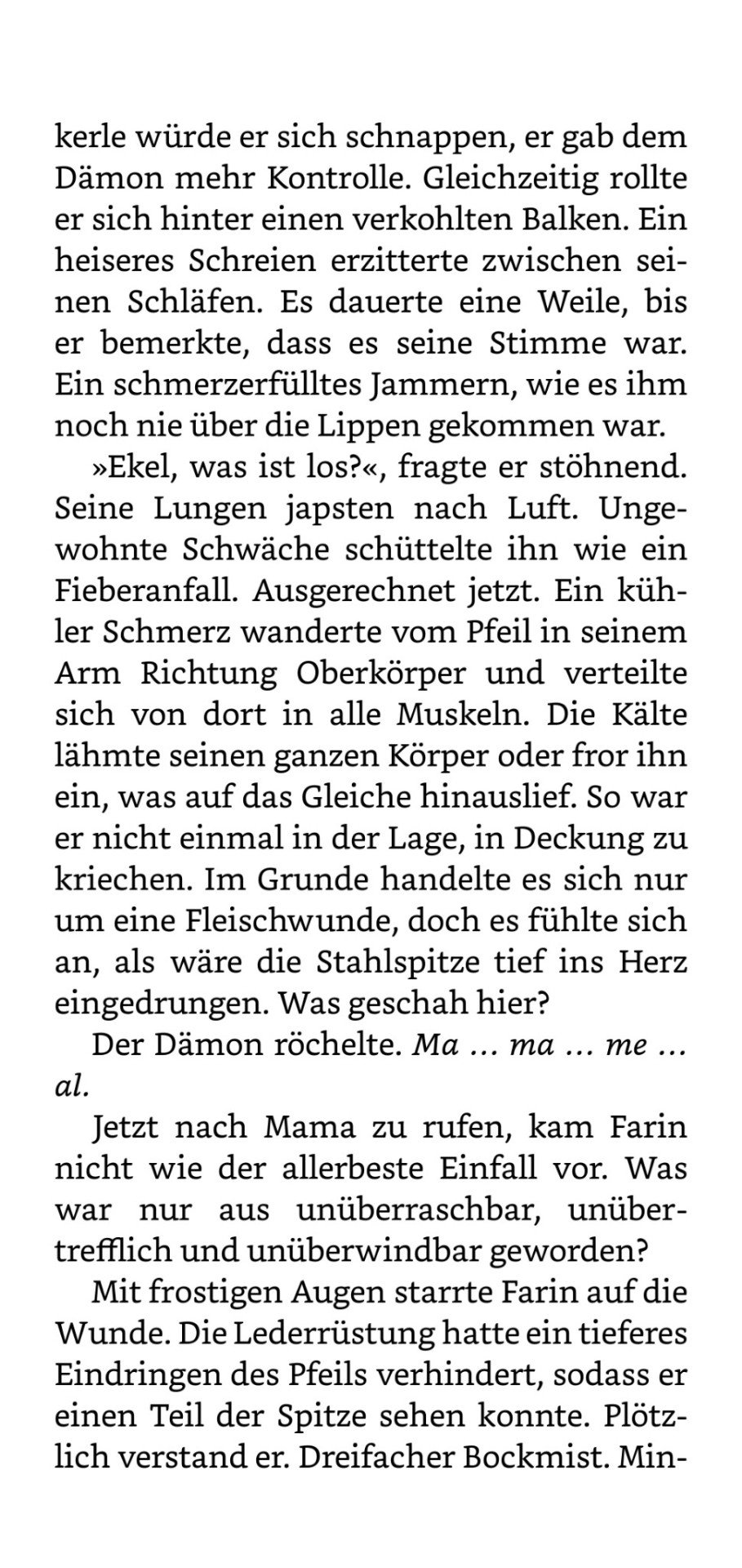
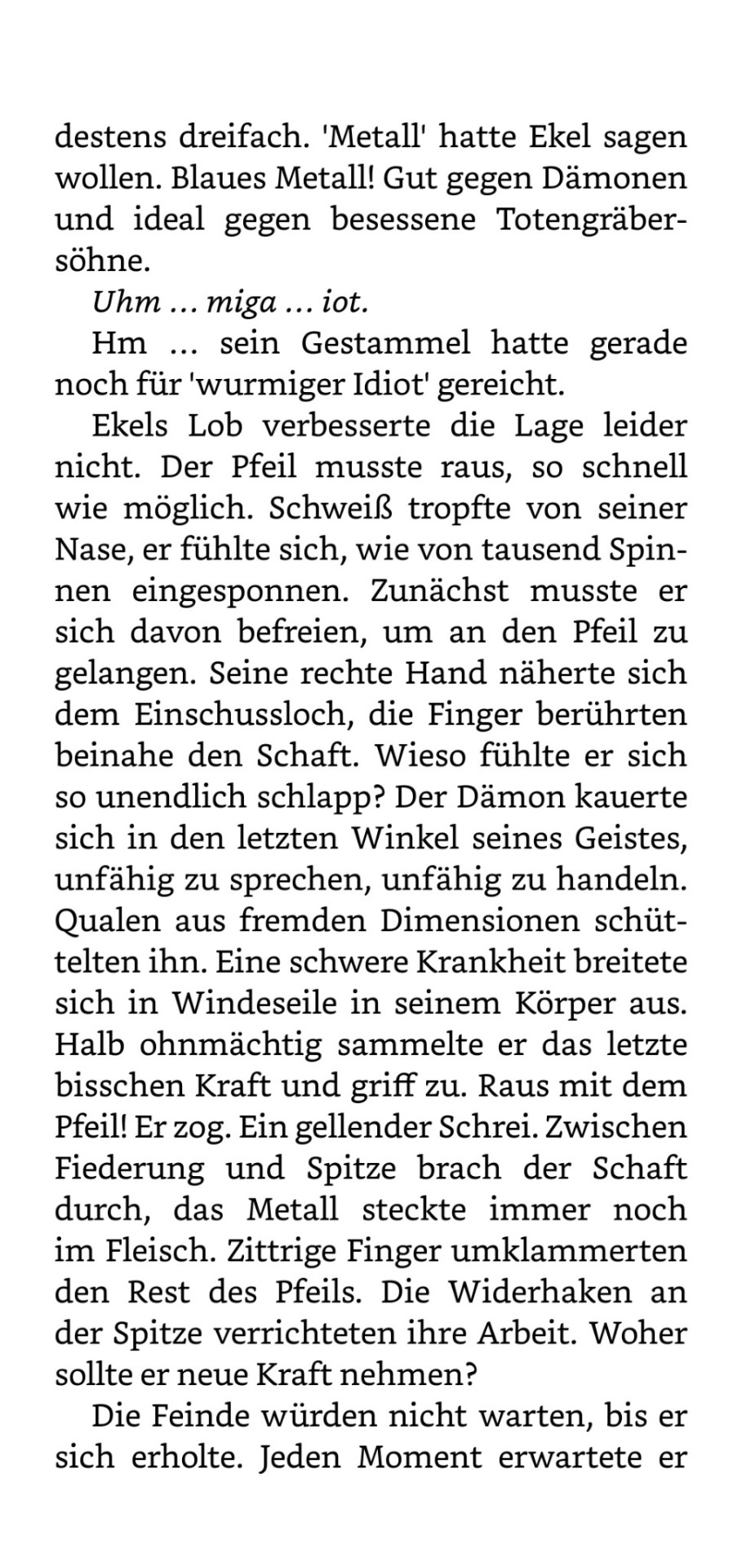
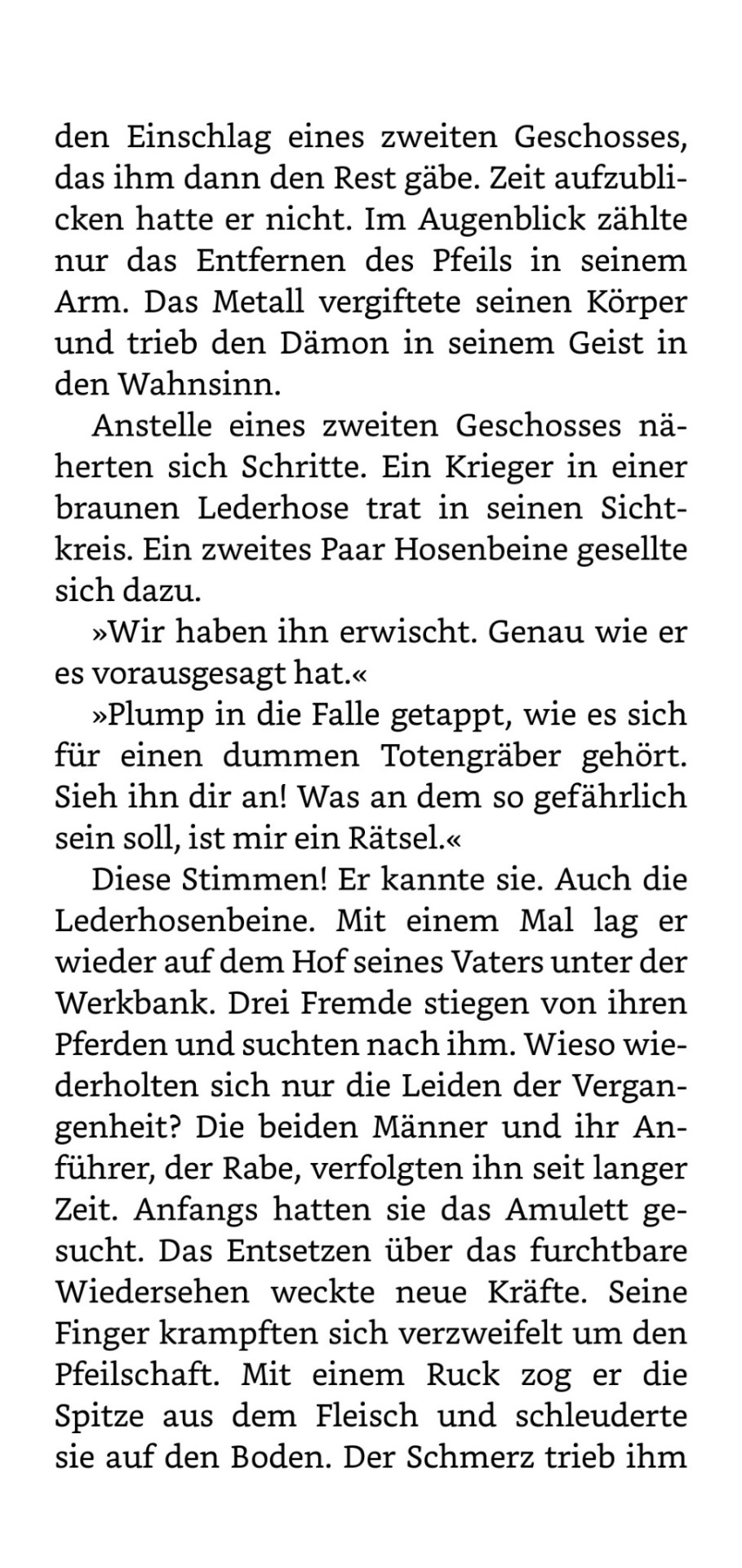
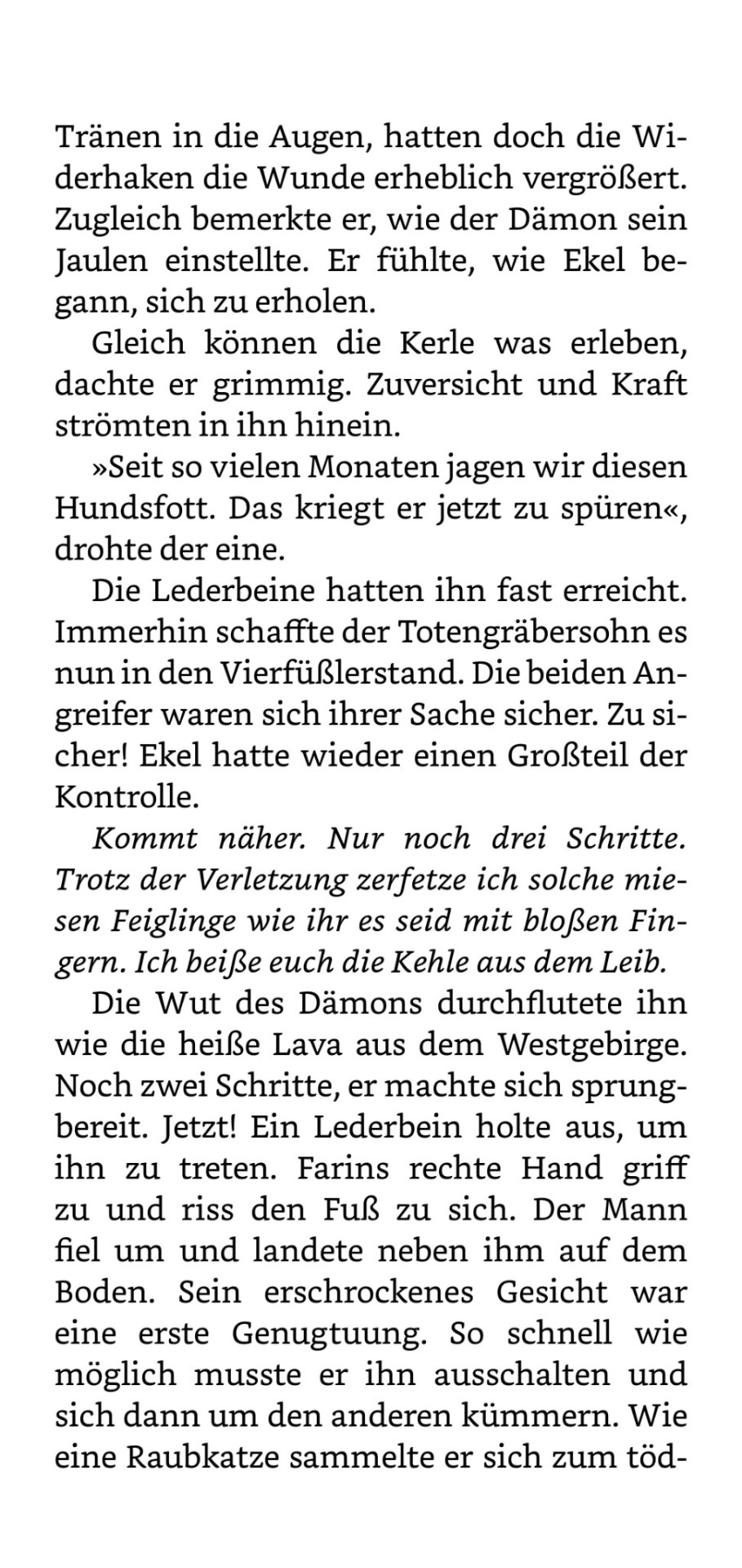
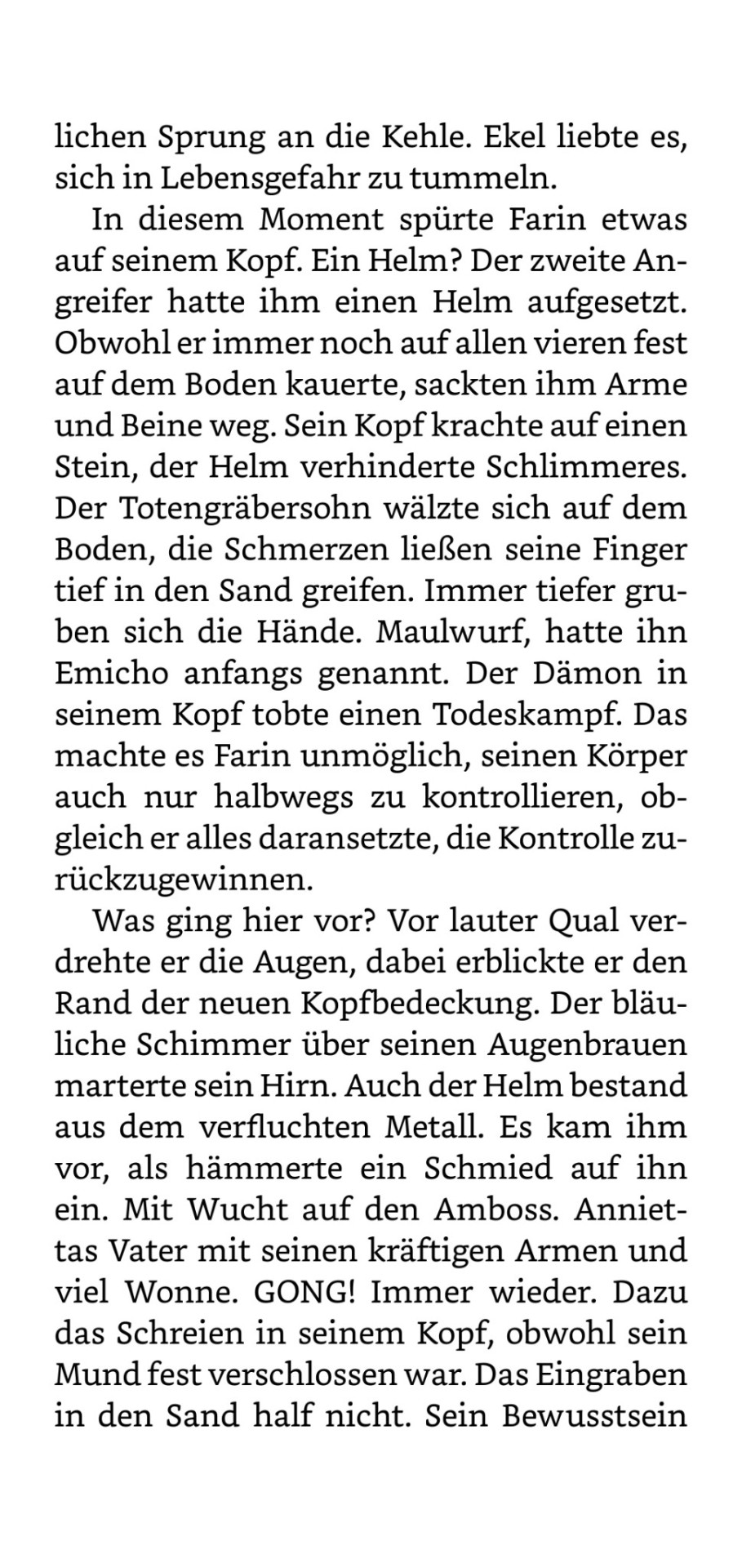
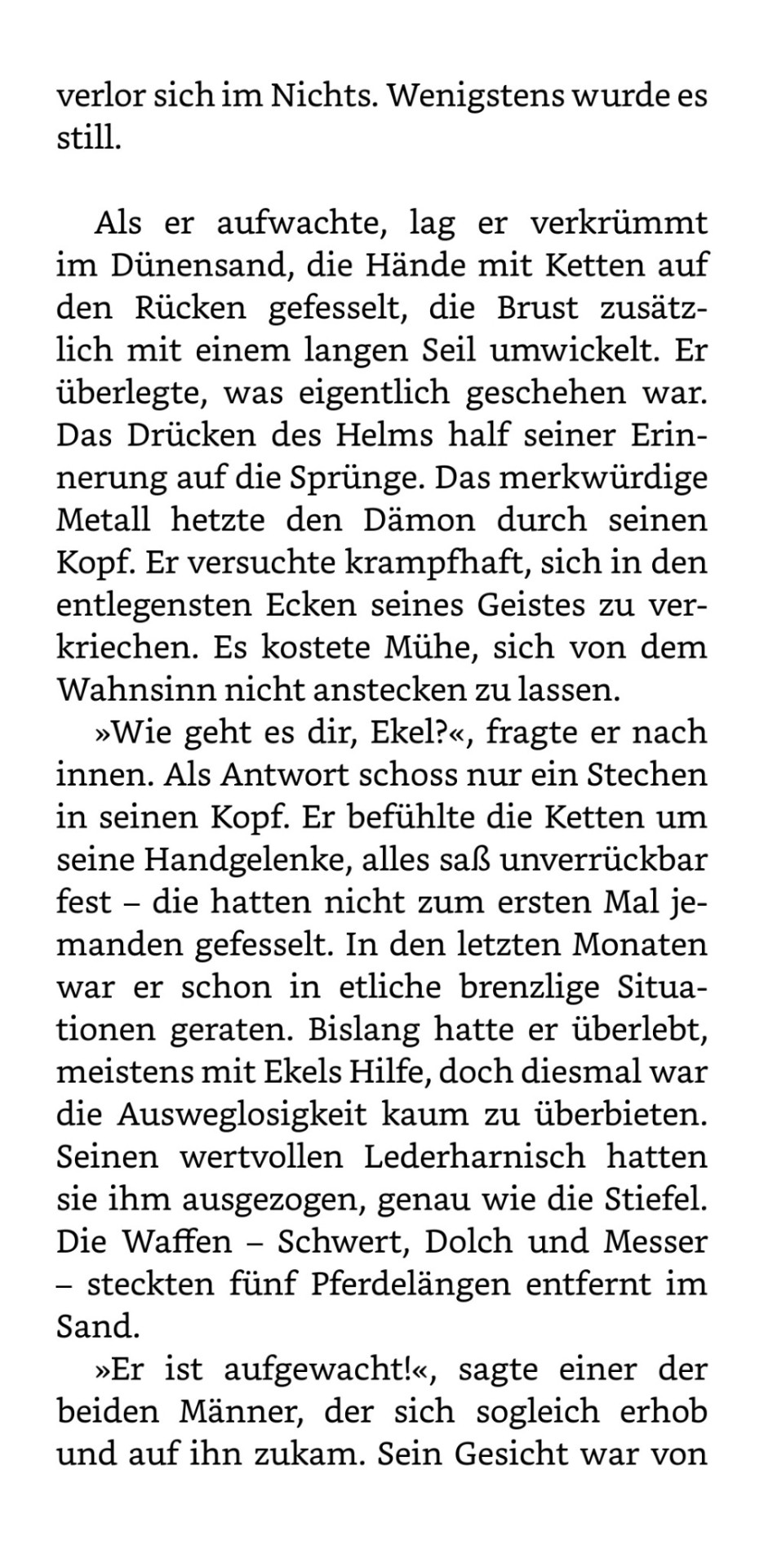
Find Part 2 here!
9 notes
·
View notes
Text
17 questions 17 people
@hanhan156 tagged me like, last year or something. I am sorry for not doing this sooner! Thanks for thinking of me, han!
1. Nickname: Stef, or these days, Maf :D
2. Zodiac: Taurus
3. Height: 163cm or something. I am not sure.
4. Hogwarts House: I don’t like Harry Potter so much, but if I had to choose, it’s Ravenclaw.
5. Last Thing I Googled: Stuff about guns and rifles for my Cowboy AU fanfic.
6. Song Stuck in My Head: To The Rhythm by Mattis
7. Number of Followers: 236 woo woo! I love all of you!
8. Amount of Sleep: 9 to 10 hours. Otherwise I don’t feel like a human.
9. Lucky Number: I don’t have one. Maybe it’s X.
10. Dream Job: Teacher.
11. Wearing: Sweat pants and a grey t-shirt.
12. Favorite Song: You can’t make me choose. But currently it’s Rammstein’s “Was ich liebe”.
13. Aesthetic: The ocean, the smell of salt and warm sand in the air. Hearing the waves crashing at the shore. The sky is blue and the water clear. You feel the heat of the sun on your skin and you’re looking forward to eat ice cream.
14. Favorite Author: Michael J. Sullivan. Sam Feuerbach. Ursula Poznanski.
15. Favorite Instrument: Piano and accordion
16. Favorite Animal Noise: Horses when they nicker quietly.
17. Random: I started writing my Wild West AU although I already have two additional WIPs. FML.
I am not sure who has done this by now and who hasn’t, so if you follow me and see this on your dash, I am tagging YOU to do that!
2 notes
·
View notes
Text
Filozofia fundamentem wszystkich nauk.
"Filozofia jest w przypadku ludzkiego rozumu najważniejszą nauką. Ona jest pierwszą nauką w historii nauki świata, z której wynikają wszystkie inne nauki, również teologia. Jako warsztat myślenia filozofia jest również nadal nieodzowna dla teologii. Zasady nauki, zasady bytu, myślenia i poznania – wszystko to pochodzi z filozofii i teologii."
Dlatego twierdzę , że teologia i filozofia to podstawa nauk. Poprzez fundamenty teologii i filozofii wywodzą się inne nauki. Nie można o tym zapominać. Wielu współczesnych naukowców jest w błędnym przekonaniu , że to właśnie fizyka, chemia czy astronomia jest podstawą funkcjonowania świata jak i jej teorię. Współcześni naukowcy nie wiedzą , że teologia może obalić wszystkie teorię naukowe. Do takich wniosków dochodził sam Albert Einstein który jak sam twierdził - był ateistą.
Odrzucający istnienie Boga naukowcy będą zawsze przywoływali swoje argumenty, pośród których nie ma miejsca na szaleństwo, jakim jest wiara. Zapatrzeni ślepo w prawa, prawdy, twierdzenia i reguły nie są skłonni dostrzec, że to właśnie wiara w odkrywanie niemożliwego i nieznanego jest fundamentem nauki. Bo czy ktokolwiek próbowałby odkrywać nieznane lądy, nie wierząc w to, że one istnieją?
Odpowiedź jest bardzo oczywista.
Jednak część uczonych chce usunięcia teologii z klasyfikacji dziedzin naukowych.
Poniżej przedstawię fragment książki które potwierdzają tezę moich argumentów.
K.Karoń , Historia Antykultury , Warszawa 2018 , str.19
MIT MATERIALNEJ MATERII
Ani na poziomie mikro , ani na poziomie kosmo , nie istnieję materia taka , jaką wyobrażali sobie Demokryt czy Feuerbach, tzn. jako istniejąca , obiektywnie , nieredukowalna , najmniejsza drobinka , której obecność można niepodważalnie stwierdzić tak jak - mówiąc obrazowo - wyczuwamy istnienie ziarenka maku między opuszkami palców. Takiej materii po prostu nie ma. W najprostszym modelu atomu 99.9% tego , co nazywamy jego masą jest skupiona w jądrze , którego średnica stanowi 1/100000 (jedną stutysięczną) średnicy atomu. Jeśli atom wyobrazimy sobie jako kulę o średnicy równiej długości pełnowymiarowego bliska piłkarskiego (ok.100 metrów) , to jądro atomu, czyli cała jego tzw. "materia" miałoby wielkość leżącego na środku tego boiska ziarenku maku o średnicy 1 milimetra.
Problem w tym , że w zbudowanym z cząsteczek elementarnych jądrze atomu nie ma czegoś takiego, jak intuicyjnie rozumiana "materia". Z punktu widzenia nauk ścisłych istnieje tylko coś , o czym zawodowi fizycy rozmawiają wyłącznie w języku matematycznych równań, a atomy są przestrzeniami wypełnionymi jedynie oddziaływaniami (bozony) między czymś , co można nazwać "porcjami energii" (fermiony). I to wszystko , co tworzy tzw. naturę zbudowane jest z takich właśnie niematerialnych cząstek.
Ani cząsteczek elementarnych , ani atomów nikt nigdy nie dotknął , nie widział , nie dotknie i nie zobaczy , ponieważ istnieją one poza zasięgiem ludzkich umysłów , a obrazy z mikroskopu skaningowego czy ze zderzacza hadronów to tylko plastyczne wizualizacje danych liczbowych. Nie ma żadnych "iskierek" tryskających ze zderzających się atomowych jąder. Okres życia cząsteczek elementarnych poszukiwanych w trakcie doświadczeń w zderzaczu hadronów CERN jest tak niewyobrażalnie krótki , że nie jest możliwe ich zarejestrowanie jakimkolwiek uprzedzeniem produkującym obrazy czytelne dla ludzkich zmysłów.
No tak , ale można powiedzieć , że to oczywista bzdura , bo przecież można twierdzić , iż nie istnieję coś , co widzimy. Rzecz w tym , że tym co widzimy , możemy powiedzieć , że to coś widzimy , ale to , czy to coś istnieję nie jest już takie pewne.

0 notes
Text
AcidHorizons: Theorie des 21. Jahrhunderts
________________________________________________________________________________
Regelmäßig erleben wir (im Positiven wie im Negativen) spontane, wenn auch ungerichtete, Eruptionen des Verlangens nach Ausgleich und Veränderung (von den Gelbwesten bis zu Fridays for Future). Warum führt dies nicht zu einer Revitalisierung der gesellschaftlichen Linken? Die Antwort auf diese Frage, wenn auch gern angeführt, ist offensichtlich nicht (Angst vor) Repression. Die Proteste finden statt. Der Hunger nach Veränderung ist da. Aber Linke profitieren nicht von dieser Entwicklung, weil sie kaum mehr Zugang zur Vorstellungskraft der Menschen finden. Woran liegt das? Das Problem liegt meiner Meinung nach dort, wo sich linke Identitäten akademisiert und verbürgerlicht haben. Der Marxismus selbst scheint nicht mehr materialistisch genug. Vielleicht war er auch immer weniger materialistisch als er sich gegeben hat. So verrennt sich Sankt Marx seit geraumer Zeit in seinem Gedankenlabyrinth, ohne zu erkennen, dass er genau das geworden ist, was er einst in Stirner und Feuerbach zu denunzieren glaubte: Die (szientistische) Heilsverkündung, Paradies und Kirche, (Gefühls-)Ware und Identität – kurz: ein spektrales Gefängnis der Entfremdung, um die Unzufriedenen daran zu hindern auf unkontrollierbare Art und Weise unzufrieden zu werden. Die Gespenster, die man nicht rufen wollte, besitzen den Kommunismus nun in all der impotenten Strahlkraft eines Evangeliums: die blumenbesetzten Ketten unserer Zeit, die nur zum Rasseln taugen. Am Ende scheint dieser Materialismus das effektivste Gewand für ein falsches Bewusstsein zu sein. Um Mark Fisher zu zitieren:
»Eventalism is the manic flipside of the general depressive tendency in boring academic Marxism – in which an ostensible Leninism/Maoism (everything will change after the revolution!) obfuscates a de facto Adornianism (nothing could ever happen, everything is bad, so we might as well keep on taking the state’s pay cheques). The whole rehabilitation of the status of philosophy itself in the past couple of decades – the reversal of the democratisiung move to theory by third-rate obscurantist „philosophy“ and curator-speak babble – is a sideshow, of course, but a symptomatic one. The sour comedy of academic philosophical Leninism and Maoism can now be seen as one of the last acts in a postmodern shadowplay – a pantomime in which we are condemned to the role of interactive audience, tweeting our responses onto the screen behind the main players, who carry on regardless.« (»democracy is joy«, K-Punk 13|07|2015, 599/600)
Das Schicksal des beseelten Materialismus zeigt auch: Statt einer weiteren exorzistischen, „politische“ Praxis, welcher (im Christentum wie im Marxismus) zu einem ritualistischem Karneval seiner selbst geworden ist, braucht es vielleicht eher ein Zeitalter der Nekromantie. Zwar ist die linke Kritik an dem Konglomerat an Strömungen, die wir unter »1968« abgeheftet haben, derzeit omnipräsent. Doch die Einsicht, dass das Scheitern der politischen Linken (Kommunismus UND Sozialdemokratie) maßgeblich mit dem Nicht-Verstehen-Wollen dieser Bewegungen zu tun hat, wird ausgeblendet. Wir müssen jetzt erst wieder lernen, den Geist einer Welt heraufzubeschwören, die frei sein könnte. Wie der Kapitalismus sich aus den Ressourcen seiner Feinde im Feudalismus (heraus-)montierte, muss sich der Postkapitalismus aus dem Territorium dieser Ökonomie konstruieren. Fisher wollte hierzu ein Buch schreiben, konnte aber nur die Einleitung und ein paar Vorlesungen vollenden, bevor er sich das Leben nahm. In seiner Abwesenheit sollten wir an der Vision einer spinozistischen, psychedelischen Vernunft festhalten und uns mit Theorien des 21. Jahrhundert beschäftigen, statt Lebenszeit an gescheiterte Visionen des 19. und 20. Jahrhunderts zu verschwenden. Es ist Zeit für ein Update. Ich möchte deswegen einige relevante Bücher vorstellen, die mir wirklich bei der Bildung eines Klassenbewusstseins und postkapitalistischen Begehrens geholfen haben.
Andreas Reckwitz (2017): Die Gesellschaft der Singularitäten
Karl Mannheim hat nicht nur den marxistischen Ideologiebegriff radikalisiert, sondern identifizierte ein falsches Bewusstsein vor allem dort, wo die eigene Weltwollung, d. h. die eigene Welterfassung der Zeit, auf die sie sich bezieht, hinterherhinkt. Die Kritik schafft es dann weder sich durchzusetzen noch ihren Gegenstand zu verstehen. Der Marxismus und seine (leninistischen, maoistischen, usw.) Ableger beziehen ihre Legitimation aus einem Weltbild des Allgemeinen. Aber das 21. Jahrhundert ist ein Zeitalter des Besonderen und das wird sich so schnell nicht ändern. Andreas Reckwitz liefert in diesem brillanten Werk mit den Begrifflichkeiten dieser neuen sozialen Logik. Für das marxistisch geprägte falsche Bewusstsein hat diese Entwicklung zwei Konsequenzen: Erstens ist es ihnen unmöglich, das Substrat zu erkennen, auf dem der Postkapitalismus wachsen kann. Zweitens entgeht gerade den vielen Randgruppen der Linken, die im Wort eine Rückkehr in das Allgemeine herbeiklagen wollen, wie sehr sie im singularistischen Denken gefangen bleiben. Im Lesekreis, Demonstrationstourismus und bei Pranger-Spielchen auf Twitter tun sie nur mehr, ohne zu wissen, was sie tun. Es überrascht daher nicht, dass es vielen dieser „Radikalen“ mit ihrem affektiven Eifer nicht wie dem Rechtspopulismus gelingt, Mehrheiten gegen Ausbeutung zu mobilisieren oder diese für sich zu vereinnahmen. Gerade der Online-Marxismus, aber auch Teile des Neo-Anarchismus (nach Mark Fisher), sind nur ein weiteres Kollektiv des Singulären (und damit auch ein Markt, reif für die Erschließung durch das Besondere). Spektrale Linien, die Gitterstäbe eines transparenten Gefängnisses, sind sehr real.
Gilles Deleuze (1992): Postscript on Societies of control
Wenn Marx eines falsch verstanden hat, dann, dass die Grundsteinlegung des Kapitalismus nicht in der Ware als nützliches Ding erfolgte, sondern in der Entdeckung der Ware als Objekt, das den (Mehr-)Bedarf an Dingen gleichzeitig multipliziert und bindet: Das Gewürz aus Frank Herberts Dune-Büchern, Adam aus Ken Levines Bioshock, – kurz: Die Droge. Nutzen ist sekundär, Abhängigkeit primär. Die Textilwirtschaft war nur das Vorspiel für die Opiumkriege. Der kapitalistische Mechanismus gründet nicht in der Mehrwert-Produktion, sondern in der »Introjektion« des Suchtdrucks, in anderen Worten: Die Manipulation des Begehrens ist ein Dreh- und Angelpunkt. In der Gesellschaft der Singularitäten wird der Vater der Kontrolle durch Anhäufung endgültig abgesetzt und durch die spektrale Nanny der Biokontrolle ersetzt, d. h. die Herrschaft der Suchtbesessenen über den Süchtigen. Die neue Macht vertraut auf die Selbstdisziplin seiner zombifizierten Subjekte, ohne sie selbst vorzuleben: Frei nach Burroughs leben wir in einem Zeitalter des Kontrollsüchtigen (vom Patriot Act zum Fitnessarmband), dem es wie dem Junkie geht nach immer mehr nach »Junk« verlangt. Während die Disziplinargesellschaft Foucaults durch die Dominanz von Räumen (Fabrik, Schule, Gefängnis) forciert wird, reguliert eine Kontrollgesellschaft Zugang (zu Abschlüssen, Erfahrungen, Körpern, – Dealer und Stoff). Kontrollsucht ist die Kehrseite dessen, was Ulrich Beck eine Risikogesellschaft nannte, ihr erster Fix. Risiko (von 0,00001% bis zu 99%) ist nicht die Katastrophe an sich, sondern die Erwartung von Katastrophen. Kontrollgesellschaften behandeln jedes Risiko (vom terroristischen Attentat bis zur Zigarette) bereits als eine Katastrophe, reagieren so auf ein Ereignis und übersetzten es in spektrale Linien des Machtgewinns. Doch dieser Aktionismus ist alles andere als effizient, wie beim realen Süchtigen verengt sich das Blickfeld auf einen Tunnel. In einer Gesellschaft, die das Risiko obsessiv auf Distanz halten will, werden kurioser Weise substanzielle Risiken, die der Unmittelbarkeit der Suchtmultiplikationslogik widersprechen, so lange wie möglich ignoriert. Corona und der Klimawandel sind hier eindringliche Beispiele.
Doch, wie Deleuze wusste, muss diese schöne neue Welt weder Anlass zur Furcht noch zur Hoffnung sein: Es geht darum, neue Waffen zu finden. Wie die Serie Mr. Robot von Sam Esmail weiß, kann in einer Kontrollgesellschaft alles, was Zutritt oder Zugriff gewährt (Türen, Biologie, Computer, soziale Beziehungen, Medien, Körper, Politik, Kultur, Emotionen), gehackt werden. Jede Tür bleibt nur so lange eine Barriere wie man sie als solche wahrnimmt. Alle Schlüssel können nachgemacht werden, weswegen die Kontrollgesellschaft (im Modus ihrer Singularitäten) auch so besessen ist von Authentizität. Umso mehr gilt: Alle stagnierenden Systeme der Authentizität in ihre fließende Künstlichkeit (aus Schloss und Schlüssel, Energiestrom und Barriere) aufzulösen, wird zu einer der mächtigsten Waffen der Subversion.
David Graeber (2018): Bullshitjobs
Eine zentrale politische Frage für die nächsten Jahrzehnte wird das Problem der Arbeit sein und hier zeigt sich am deutlichsten, dass der Kapitalismus ein System der künstlichen Verknappung ist, das reale Knappheit erzeugt, statt auf sie nur zu reagieren. Und doch: Gerade in Deutschland macht sich derzeit ein neues Feld von Adorni(e)ten breit, die die bürgerliche Spießigkeit des 19. und 20. Jahrhunderts in ein linkes Ideal verkehrt haben. (Dass auch dieses Theater perfekt in der singulären Logik einer Ökonomie des Besonderen und der Authentizitätssucht der Biokontrolle aufgeht, scheint niemanden zu stören.) In modifizierter Form will man den Frankenstein zum Keynesianismus spielen (MMT) und das verquere Ziel der Vollbeschäftigung (Jobgarantie) beibehalten. Nur wird das nicht gelingen: Bullshitjobs von David Graeber zeigt eindringlich, wie sehr das gegenwärtige Wirtschaftssystem von sinnlosen und sozialschädlichen Tätigkeiten unterwandert ist. Der gegenwärtige Stand der Automatisierung, die gewachsenen Ansprüche einer Gesellschaft der Singularitäten und der Klimawandel straft die Verheißungen der Vollbeschäftigung Lügen. Es geht nicht, ohne noch mehr Bullshitjobs in die Welt zu setzen. Und ist das der geistigen Gesundheit aller zuträglich? Ist es nicht besser, einen Schritt weiterzugehen und (wie u. a. von Bob Black gefordert) der Erwerbsarbeit als Ideal den Todesstoß zu versetzen? Arbeit ist nur dann erfüllend, wenn sie notwendig und/oder gewollt ist. Arbeit ist nicht erstrebenswert, weil sie Beschäftigung ist.
Mark Fisher (2009): Capitalist Realism
Während der kapitalistische Realismus als positives politisches Projekt nach der Finanzkrise 2008 aufgegeben wurde, existiert er als untoter Wahrnehmungs- und Deutungshorizont weiter. Dieses dünne Buch strahlt nach wie vor durch seine Präzision, Klarheit und Dichte, von der die Schwurbeleien des akademischen Sankt-Marx-Bürgertums nur träumen können. Wie in seinem gesamten Werk beschäftigt sich Fisher auch hier mit der Interaktion von Kultur und sozio-ökonomischen Fragen, wenn auch (noch) ohne eigene politische Vision. Die Kritik benennt jedoch auch klare Fluchtlinien, die der Kapitalismus nicht bewältigen kann: 1. die Umweltkrise, 2. die Ausbreitung und Entpolitisierung psychischer Erkrankungen und 3. die (gegen alle Versprechungen) wachsende Bürokratie im Neoliberalismus. Hier muss ein postkapitalistischer Aktivismus mit zerschmetternder Kritik den Finger in die Wunde legen, bis diese sich entzündend. Der Kapitalismus ist zu ineffizient, um unsere Zukunft gestalten zu können.
Paul Mason (2015): Postcapitalism
Paul Mason vereint auch viele der genannten Ansätze auf dieser kleinen Liste in seinem Buch. Doch neben den interessanten Gedanken zu Kondratieff-Wellen und der Definition eines neuen historischen, im Netzwerk verorteten Subjekts (als Spiegelbild von Reckwitz‘ singularistischen neuen Mittelschicht), ist noch ein anderer Punkt entscheidend. Zu den drei Vektoren, die Fisher als unüberwindbare Probleme für den Kapitalismus definiert, kommt hier ein weiterer hinzu: Information. Informationsgüter unterscheiden sich grundsätzlich von anderen Gütern in der Warenzirkulation. Da sie unendlich reproduzierbar sind, widersprechen sie per definitionem der kapitalistischen Eigentums- und Verknappungslogik. Die Verteilung von Eigentumsrechten wird zum Basar der Kontrollsuchtbesessenen und gleichzeitig immer stärker durch Hacker:innen unterwanderbar. Die Anarchist:innen waren auch hier (wie im Anti-Work-Aktivismus) den Marxist:innen Meilen voraus, die sich in ihrem melancholischen Blackmetal-Adornismus verschanzten: F. O. S. S. (Free Open Source Software) war von Anfang an Teil des Internets. Es ist vor allem diesen Pionieren zu verdanken, dass viele Standardanwendungen und Dienste auch nach Kommerzialisierung des Internets dem Internet kostenlos zur Verfügung standen.
Diese Liste ist nur ein Anfang und ich bin jeder Zeit für Ergänzungen offen. Auch würde es mich freuen, mich mit Leuten zu vernetzen und Menschen auszutauschen, die ebenso wie ich die Nase voll haben vom linken Historismus und etwas verändern wollen. Links zu meinen Seiten und meiner Email-Adresse in der Signatur.
Weiterführend:
Baudrillard, Jean (1994). Simulacra and simulation. Ann Arbor: University of Michigan State press.
Beck, Ulrich (2008). Weltrisikogesellschaft. Frankfurt a. M.: Suhrkamp.
Bregman, Rutger (2019). Utopien für Realisten. Aus dem Englischen von Stephan Gebauer. Hamburg: Rowohlt Taschenbuch.
Deleuze, Gilles (1992). Postscript on Societies of Control. In: October, Vol. 59 (Winter 1992).
Derrida, Jacques (2004). Marx‘ Gespenster. Frankfurt a. M.: Suhrkamp.
Fisher, Mark (2021). Postcapitalist Desire: The final lectures. Edited and with an Introduction by Matt Colquhoun. London: Repeater Books.
Fisher, Mark (2018). K-Punk. The Collected and unpublished writings of Mark Fisher (2004-2016). Edited by Darren Ambrose. Foreward by Simon Reynolds. London: Repeater Books.
Fisher, Mark (2009). Capitalist Realism. Is there no Alternative? Winchester/Washington: Zero Books.
Fisher, Mark (1999/2018). Flatline Constructs: Gothic Materialism and Cybernetic Theory-Fiction. Forward by exmilitary. New York: exmilitary press.
Graeber, David (2018). Bullshitjobs. The Rise of pointless work and what we can do about it. London: Penguin Books.
Mason, Paul (2015). Postcapitalism. A Guide to our Future. London: Penguin Books.
Reckwitz, Andreas (2017). Die Gesellschaft der Singularitäten. Berlin: Suhrkamp.
________________________________________________________________________________
Poltergeist – Politik und Kultur
Für Fragen, Kooperationen und Anregungen, schreibe mir eine E-Mail unter [email protected] oder besuche mich auf meinen Social-Media-Seiten!
Twitter, Instagram, tumblr, Youtube, DeviantArt, Pinterest
#markfisher#acidcommunism#acidhorizons#nomoremiserablemondays#gillesdeleuze#paulmason#bge#antiwork#postcapitalistdesire#bullshitjobs#kontrollgesellschaft#singularität#risikogesellschaft#erlebnis#theorie#zukunft#william burroughs#Politik#kultur#gegenkultur#leftist#anticonformist#antikonservativ#fortschritt#fisher#Posthumanismus#postkapitalismus#klimawandel#sozialkritik#sozialeUngleichheit
1 note
·
View note
Text
Bestseller in Fantasyromane #8: Der Totengräbersohn: Buch 2 von Sam Feuerbach https://t.co/TX8DeTHJIW #Kindle #Fantasyromane https://t.co/pr8egheW2t
Bestseller in Fantasyromane
#8: Der Totengräbersohn: Buch 2 von Sam Feuerbach https://t.co/TX8DeTHJIW #Kindle #Fantasyromane pic.twitter.com/pr8egheW2t
— KdlAzDE.bot (@KdlAzDE) March 21, 2018
via Twitter https://twitter.com/KdlAzDE
March 21, 2018 at 04:30PM
0 notes